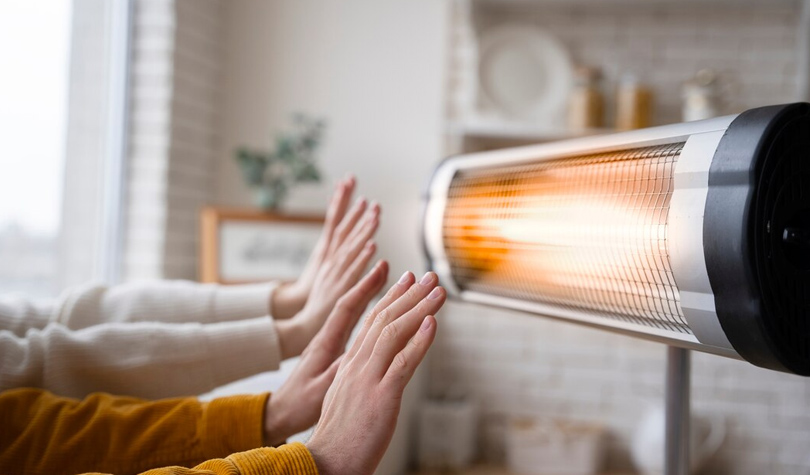When winter strikes, there is nothing more comfortable than a warm home. Household heating systems are the main player in this treasure.
A heating system draws thermal energy from different sources such as gas or electricity and pumps it around your house. Several types of heating systems are available with unique features, power, and benefits. From floor heating to solar, there is a heating system for every home and family’s needs. Also, you can get a combination of heating systems for more heating or reach areas where the ducts don’t usually run.
So, if you are facing issues with heating, chances are it broke down or needs repairs. Just in case, you can use DIY methods to troubleshoot common HVAC problems. Now, whether you want a new heating system for your own or are just curious to learn about it, this blog is for you. We will go over the different types of heating systems for homes, so you can make a comfortable choice.
Types of Heating Systems for Homes
Here are the different types of heating systems that you can install in your home.
Image Source: freepik.com/freepik
1. Furnaces
Furnaces are a common heating system choice for people in America. A furnace’s mechanism of working is by burning fuel, which can be oil, propane, electricity, or natural oil. As a result, it produces heat and forwards it to the metal heat exchanger, which travels to the surrounding air. From there, a fan distributes the warm air around the house through ducts and vents.
Advantages
- It requires less maintenance than any other type of heating system. There are ways to improve your furnace’s efficiency to cut more on maintenance.
- It uses the regular ductwork and you can also share it with the air conditioning system.
- It is more affordable as compared to others because of less fuel expenses and higher energy efficiency.
Disadvantages
- Using furnaces in your home carries the risk of fire, disasters, and carbon monoxide toxicity.
- It can transfer allergens around the house via fans and ductwork.
2. Electric Heaters
Electric heaters use electricity to create heat energy and distribute it around the house. Sometimes people also call it electric resistance heating. It comes in a variety of sizes and shapes.
Advantages
- It is less expensive.
- It comes in various shapes and sizes according to the needs.
- It is highly efficient.
Disadvantages
- It can get costly over time as it consumes electricity.
- It can be dangerous.
3. Heat Pumps
Heat pumps are of three types. These are air-air, water source, and geothermal. These heating systems use electricity and refrigerant to suck in heat from the air, water, or ground (based on the type of heat pump you have), and push it in your house. In the summer, heat pumps work by throwing the inside warm air out.
Advantages
- Heat pumps are energy efficient and are cheaper to run as compared to furnaces.
- It does not burn fossil fuels.
- It does not need ducts.
Disadvantages
- It does not generate enough heat in highly cold temperatures.
- It may be costlier than average to install.
4. Boilers and Hydronic Heating
Regular boilers and radiators are radiant or hydronic heating systems. They work by heating water in a central boiler region by consuming natural gas, fuel, oil, propane, or electricity. The warm water or steam travels via a network of pipes to finally come to radiators or heaters around the house. So, when the water heats up in there, the air heats up inside the room through convection.
Advantages
- It gives the option to homeowners to control heat distribution through certain areas.
- It needs less maintenance because of the absence of a filter.
- It disperses heat evenly throughout the house.
Disadvantages
- Sometimes it may leak water but it’s rare.
- You will need a separate system for cooling.
5. Wood and Pellet Heating
Wood heating or pellet heating is another great heating system that utilizes firewood, which is generally cheaper than other fuel sources. This method utilizes an outdoor wood boiler, a pellet stove, or other. In modern days, there is better wood heating technology, which utilizes compressed pellets made from wood, which burns clean and is more efficient.
Advantages
- It is more environmentally friendly because it doesn’t burn fuels.
- It is cheaper than others (more, if you can pick and cut your own firewood).
- It is freely available.
Disadvantages
- It can be difficult to transfer heat throughout the house.
- It can cause fire breakouts if you are not careful.
6. Solar Heating
Solar heating is what it says it is. It utilizes solar energy to heat air or liquid. After that, it sends it directly into your house. If you think solar heating is not cutting it, you can also install another heating system.
Advantages
- It is an environmentally friendly option.
- It helps save a lot on utility bills.
- It will most probably increase your house value.
Disadvantages
- It is expensive to install.
- It is not as consistent as others.
Final Summary
A heating system is a treasure and installing one can be a high investment. So, make sure you make the right choice according to your needs. A professional and proper installation can make your heating system last longer and perform more efficiently. Also, you must leave these bad HVAC habits to increase its life on your part.



